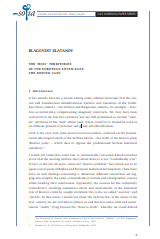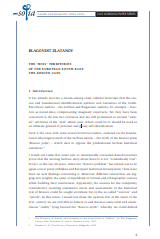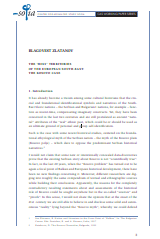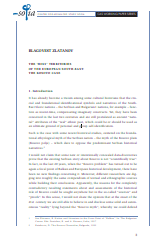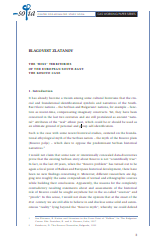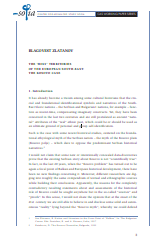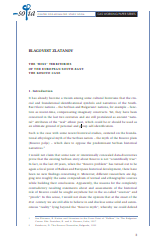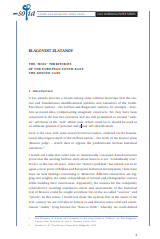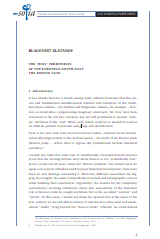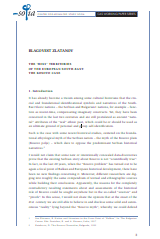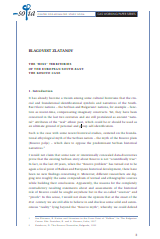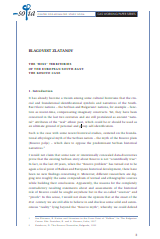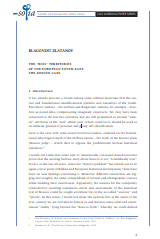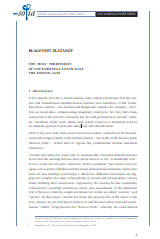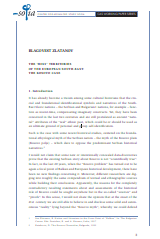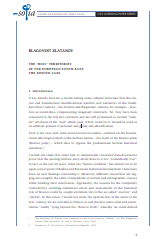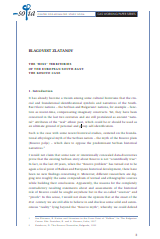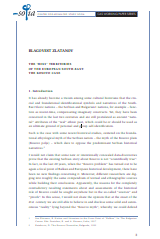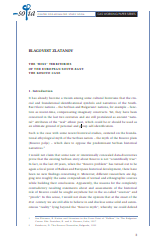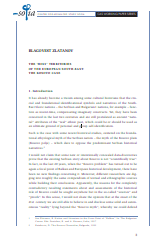
The ’Holy’ Territories of the European South-East: The Kosovo Case
The ’Holy’ Territories of the European South-East: The Kosovo Case
Keywords: Balkans Culture; Balkan as Region; Balkans Identity; Kosova;
It has already become a truism among some cultural historians that the crucial and foundational identificational symbols and narratives of the South- East Slavic nations – the Serbian and Bulgarian1 nations, for example – function as recent-time, compensating imaginary constructs. Yet, they have been conceived in the last two centuries and are still postulated as ancient “natural” attributes of the “real” ethnic past, which could be or should be used as an ultimate ground of personal and group self-identification. Such is the case with some recent historical studies, centered on the foundational ethyological myth of the Serbian nation – the myth of the Kosovo plain (Kosovo polje) – which dare to oppose the predominant Serbian historical narratives. I would not claim that some new or intentionally concealed data-discoveries prove that the existing Serbian story about Kosovo is not “scientifically true”. In fact, in the last 20 years, when the “Kosovo problem” has turned out to be again a focal point of Balkan and European historical development, there have been no new findings concerning it. Moreover, different researchers are digging into roughly the same compendium of textual and ethnographic sources while building their conclusions. Apparently, the reasons for the completely contradictory resulting statements about and assessments of the historical role of Kosovo could be sought anywhere but in the so-called “sources” and “proofs”. In this sense, I would not share the opinion that at the onset of the 21st century we are still able to believe in and disclose some solid and autonomous “reality” lying beyond the “Kosovo myth”, whereby we could defend our stories and self-projections as reasonable and well-grounded. The main objective of my paper is rather different. I am not going to discuss the relation between the “Kosovo myth” and “historical reality”, or the discrepancy between the fi ctionality of the former and the truthfulness of the latter. I am not going to demystify the deceptiveness of the national phantasm “Kosovo”, and thus argue for the impeccability of some reality over there. In the last years so many people have indulged in confronting the shamefulness and anachronicity of the “Kosovo myth” that it seems as if the contemporary world is saturated by the self-evidence and predominance of advanced and civilized rationality, which brings us to the invincible principles of happiness and justice. On the contrary, I believe in the mytho-genesis of most of the contemporary political and historical establishment. Yet, it is not my goal to prove this here. What I am rather interested in are such simple questions as how people are attached to space, what is their relation to the territory, what it is that they call “Kosovo” for example, why they are so eager to envisage some strip of land as their own “possession”, “homeland”, “source of identifi cation” and so on. [...]
More...
